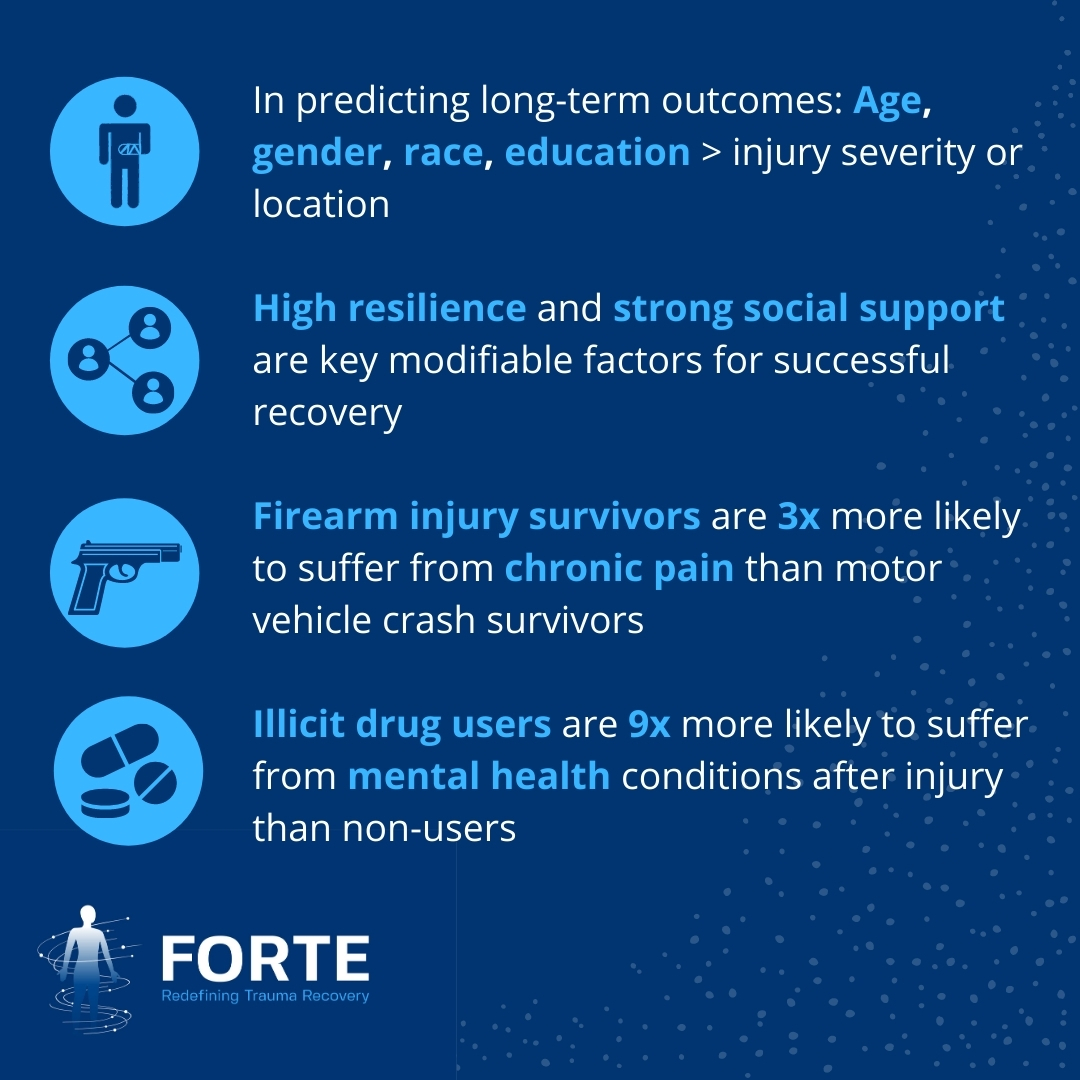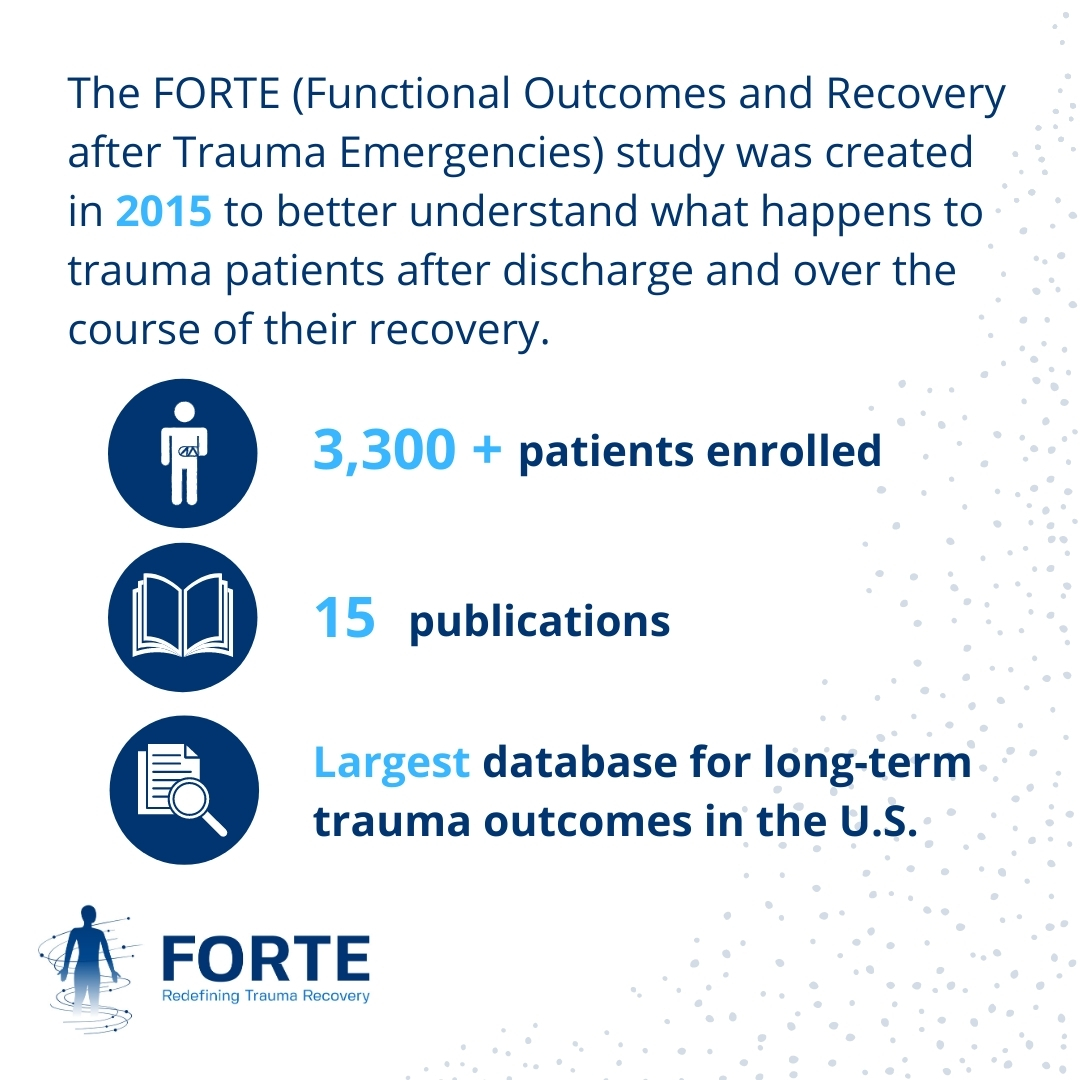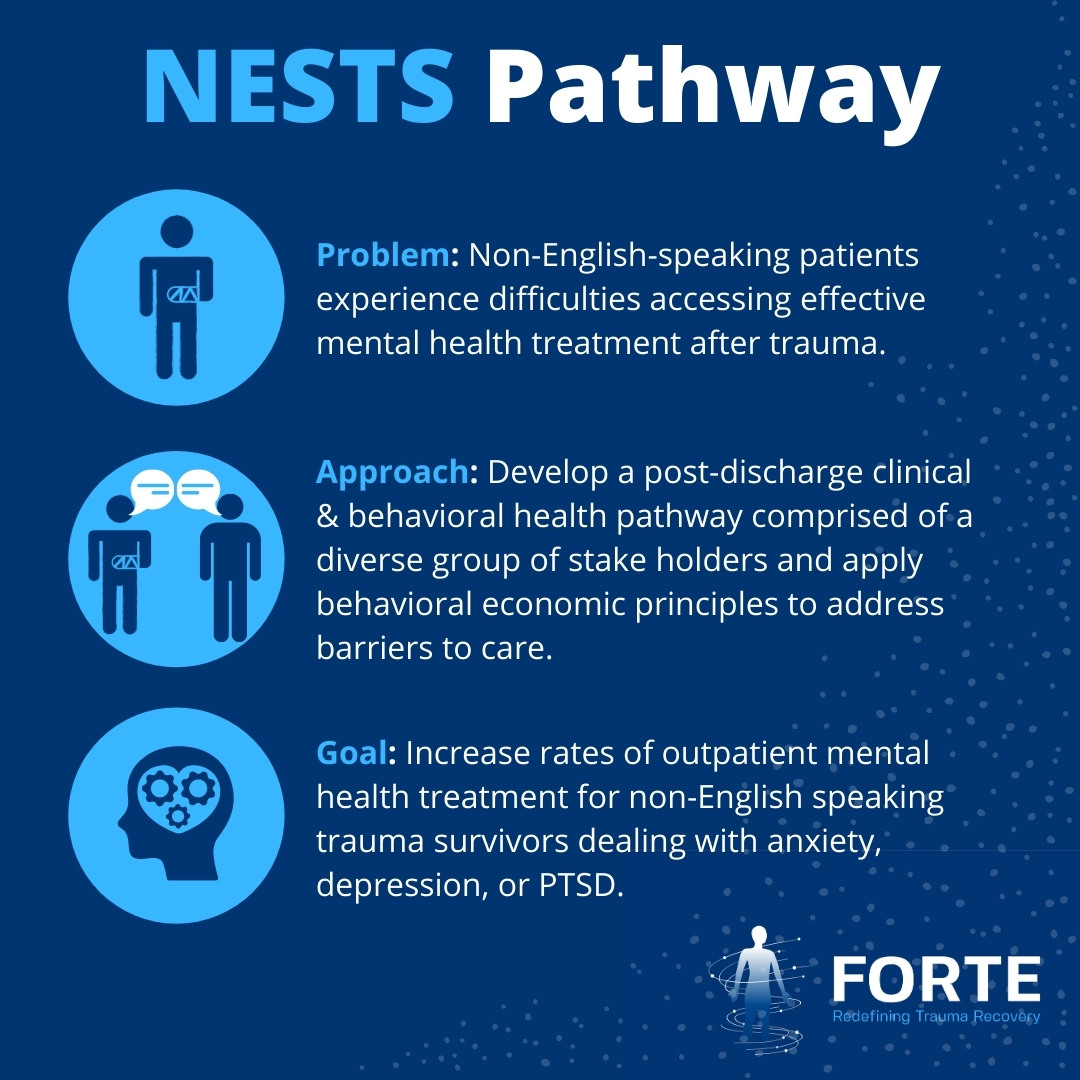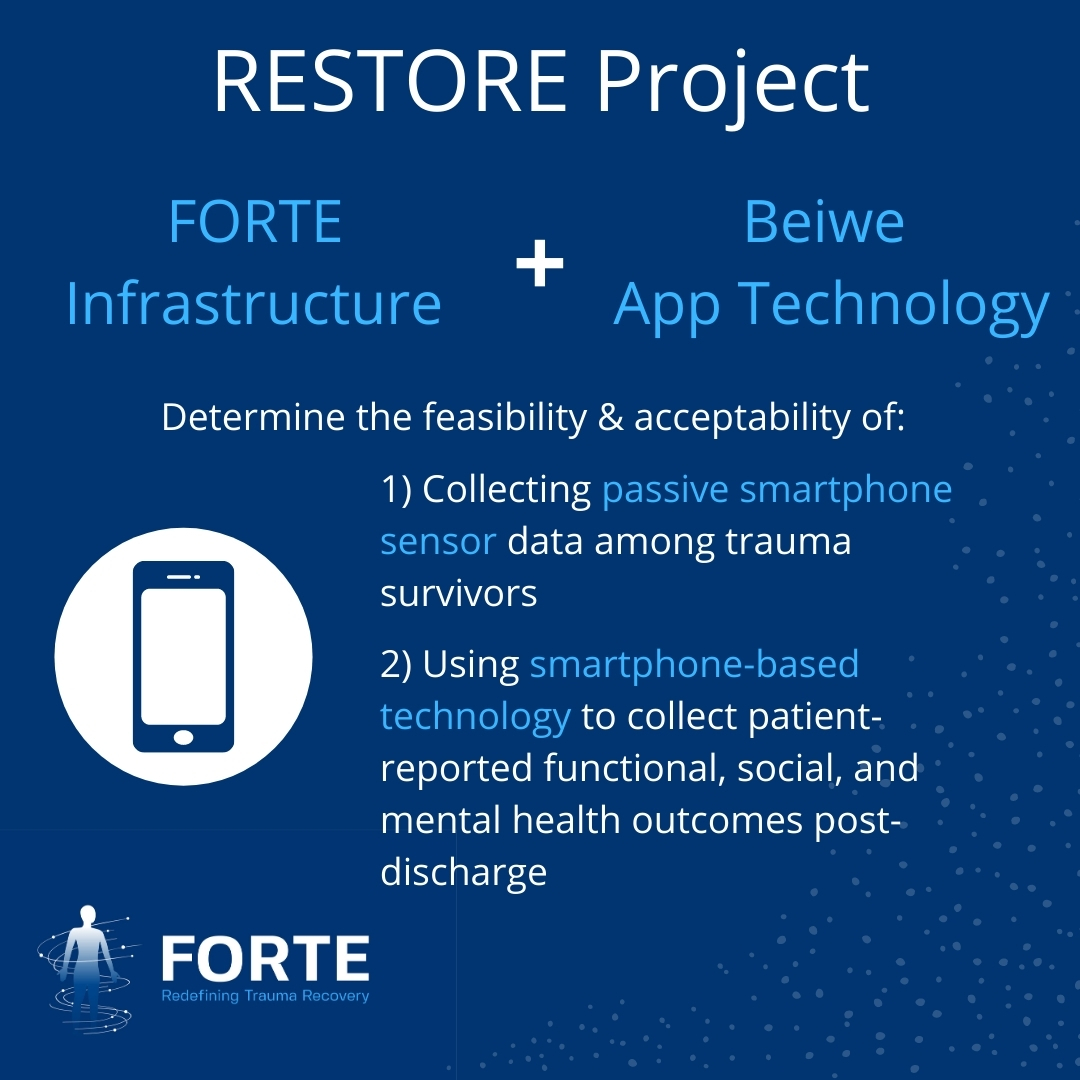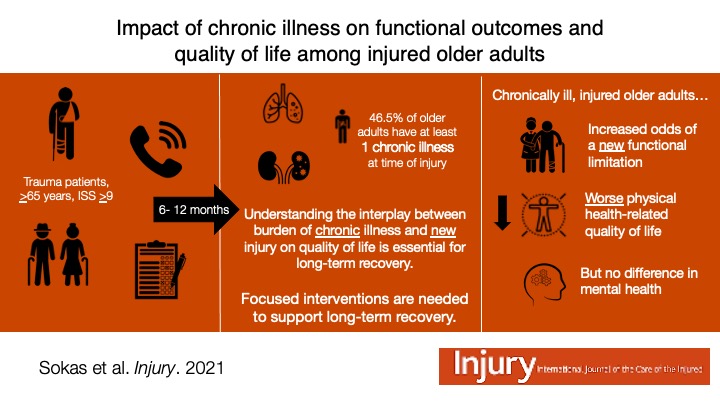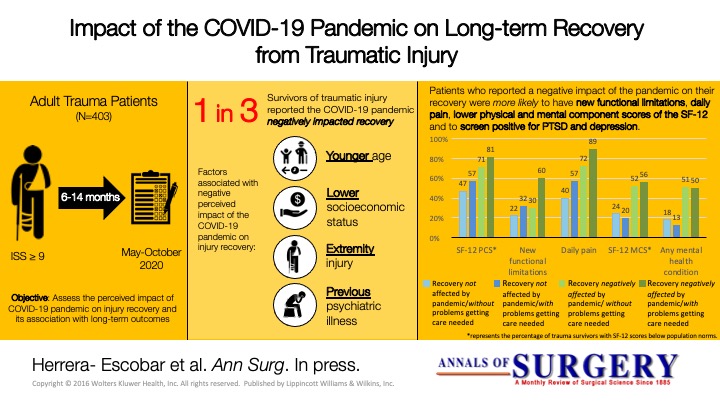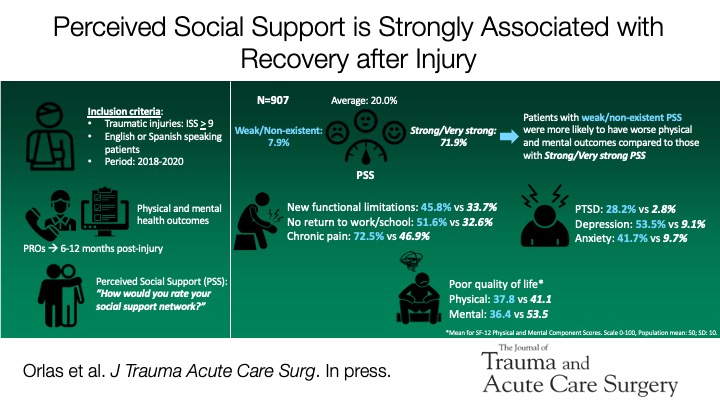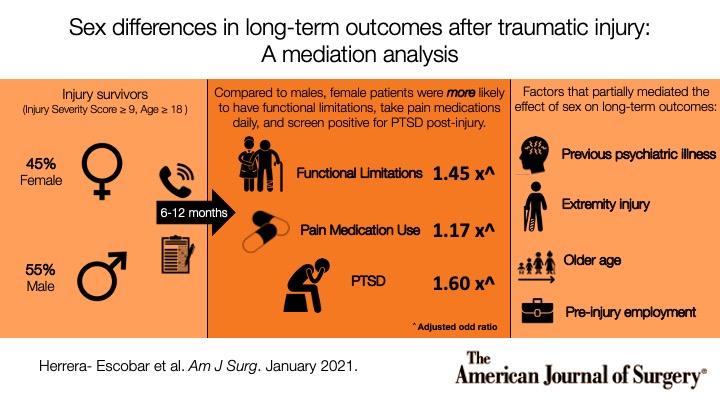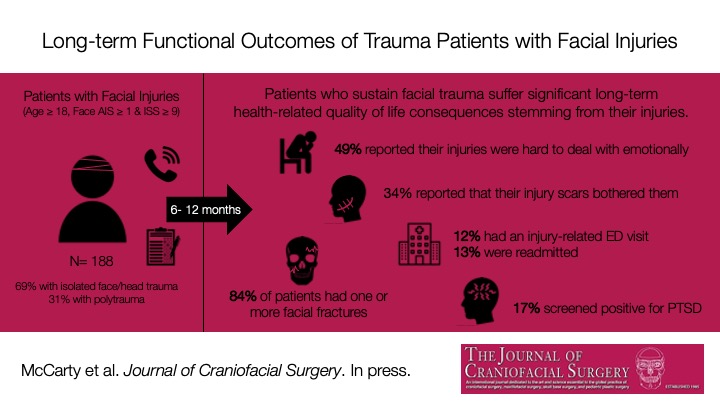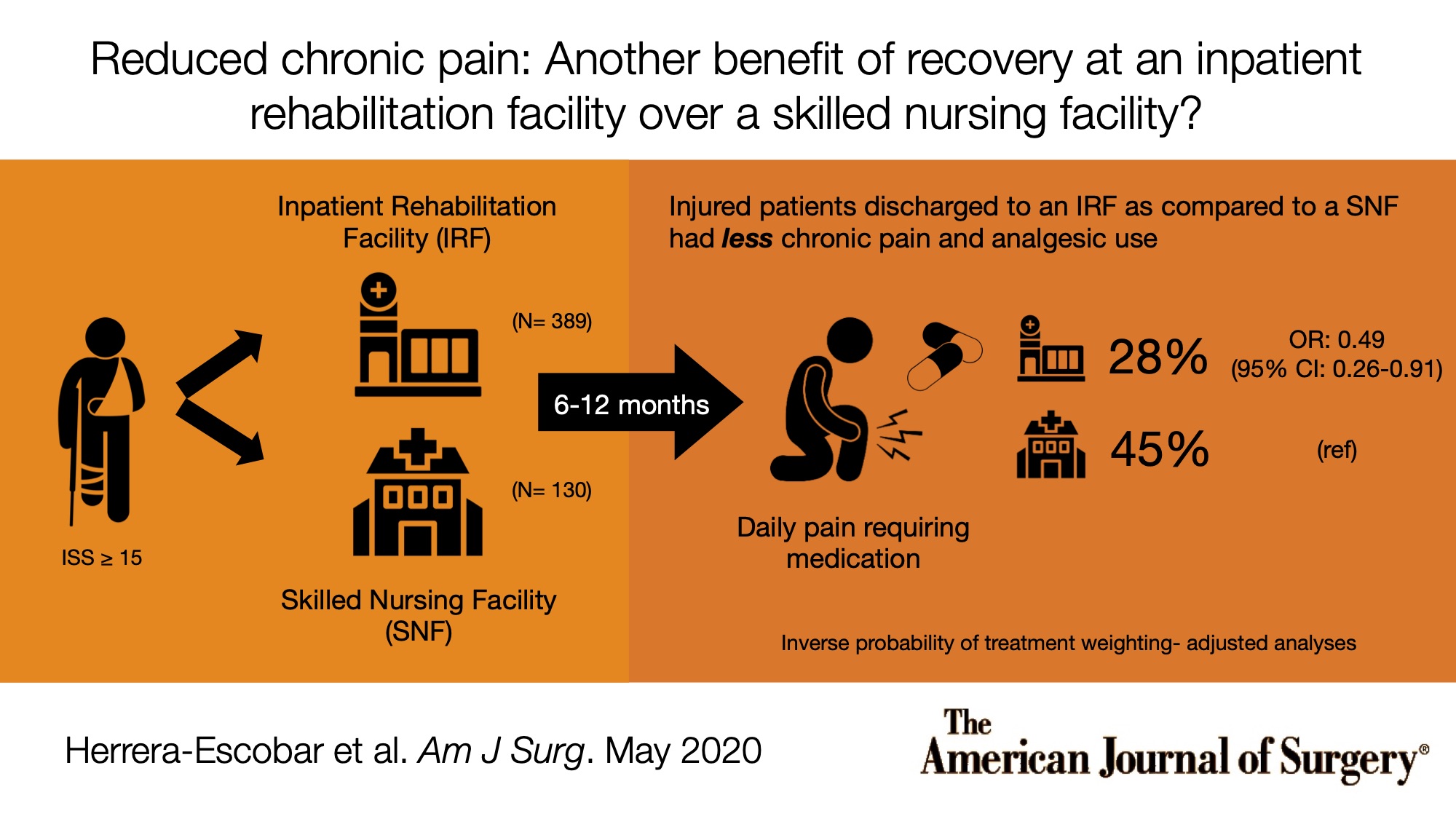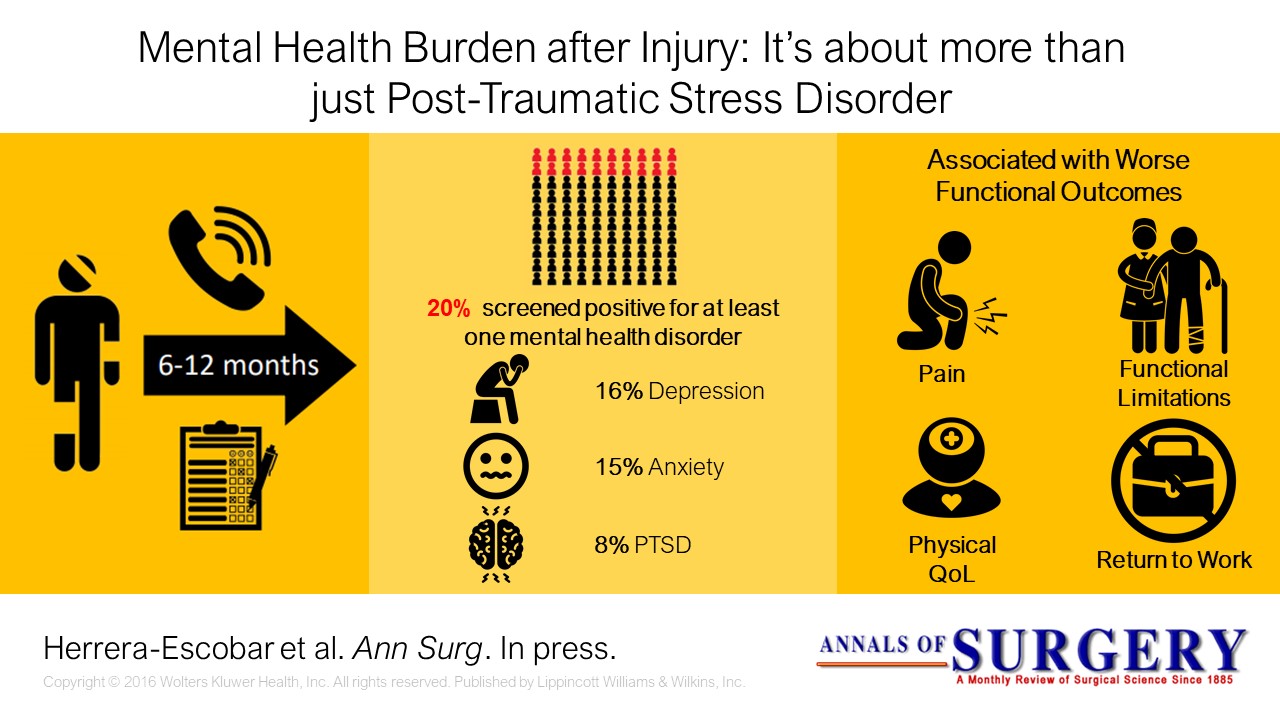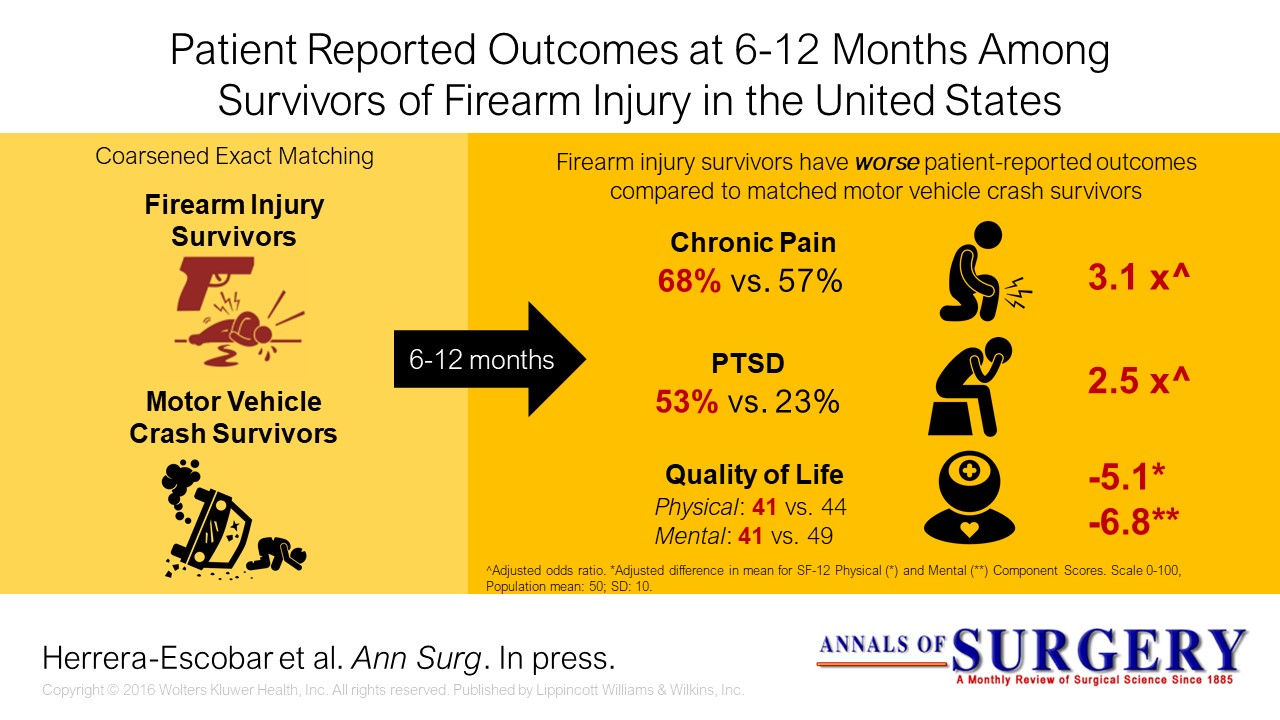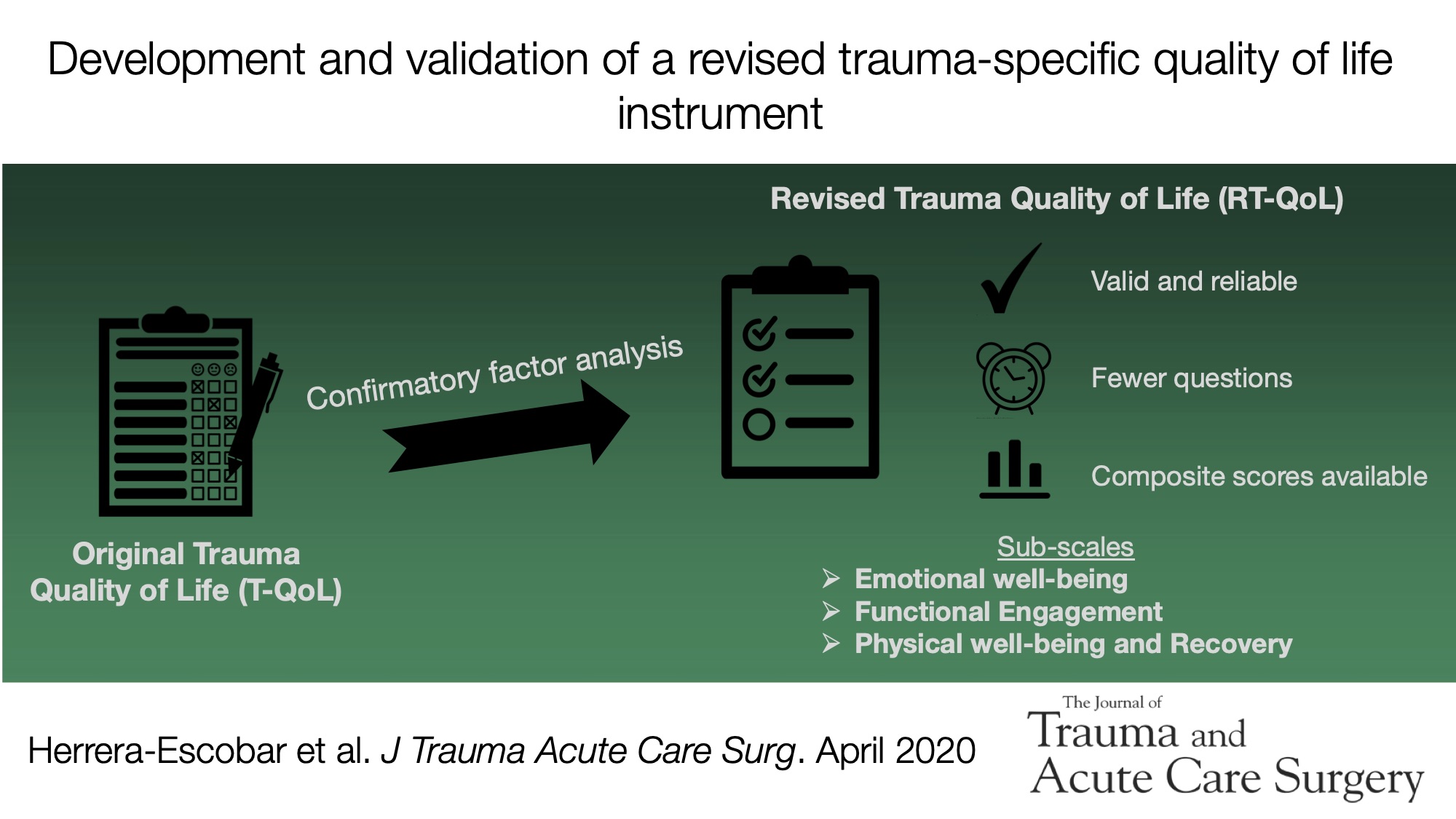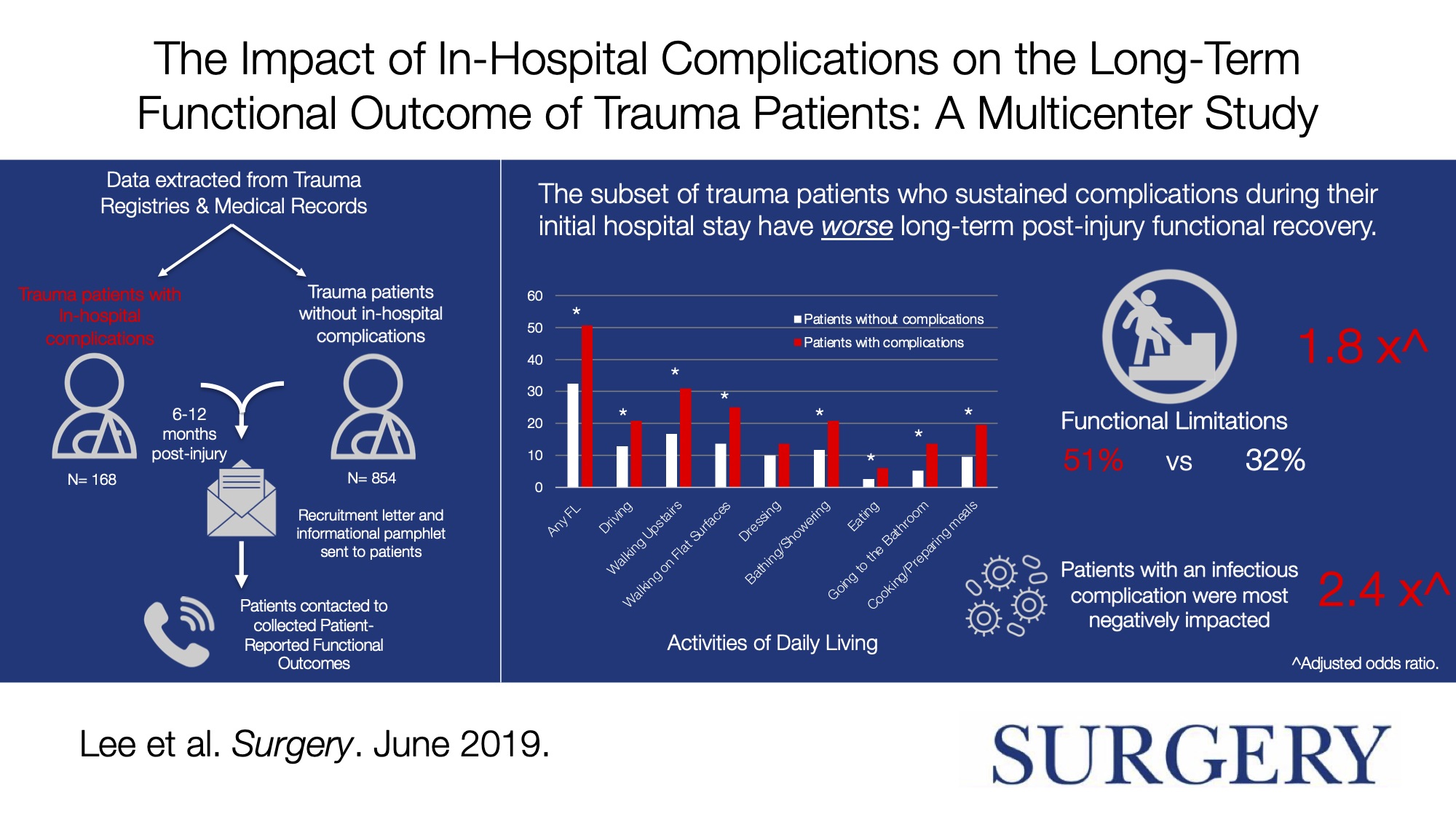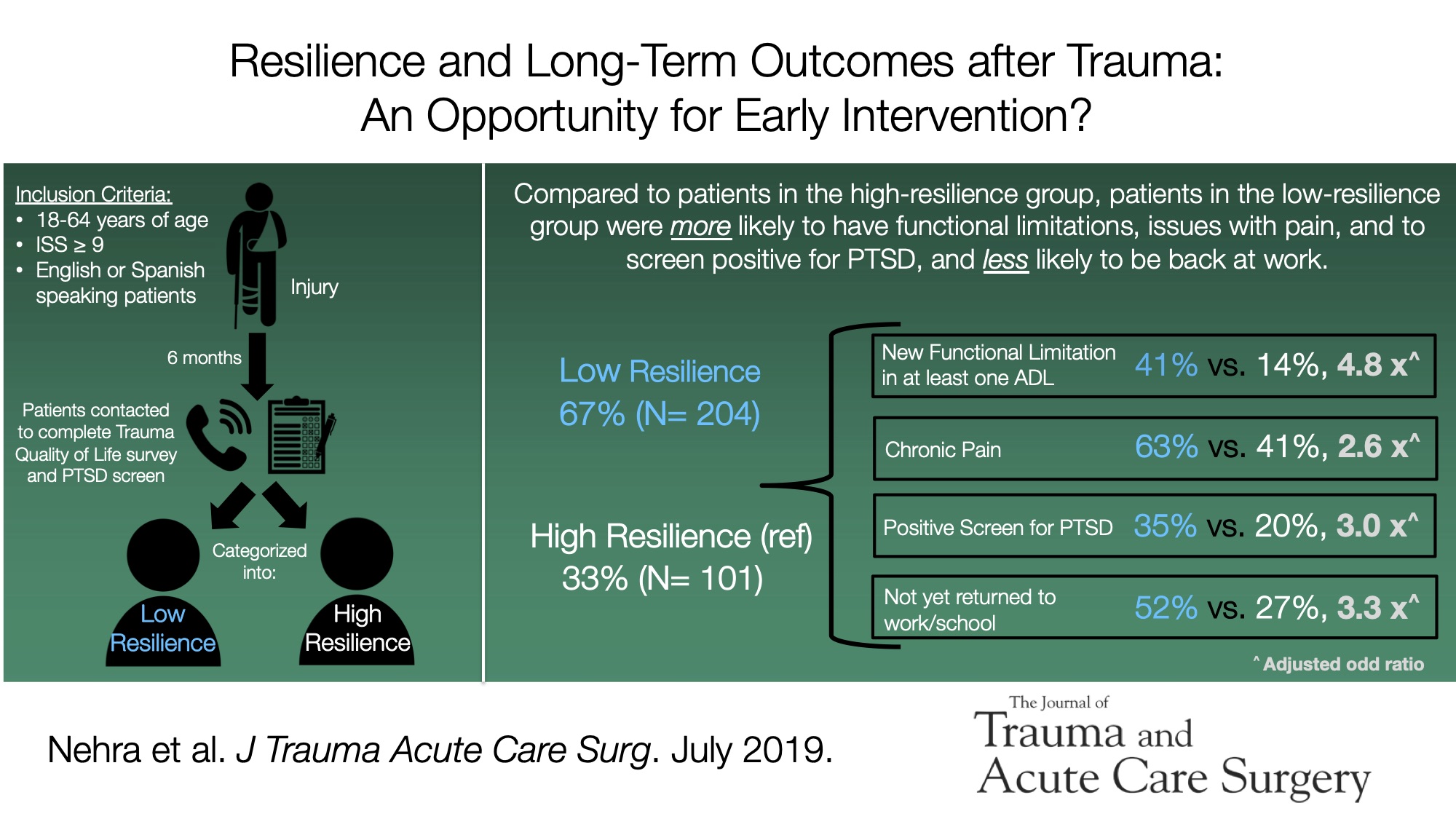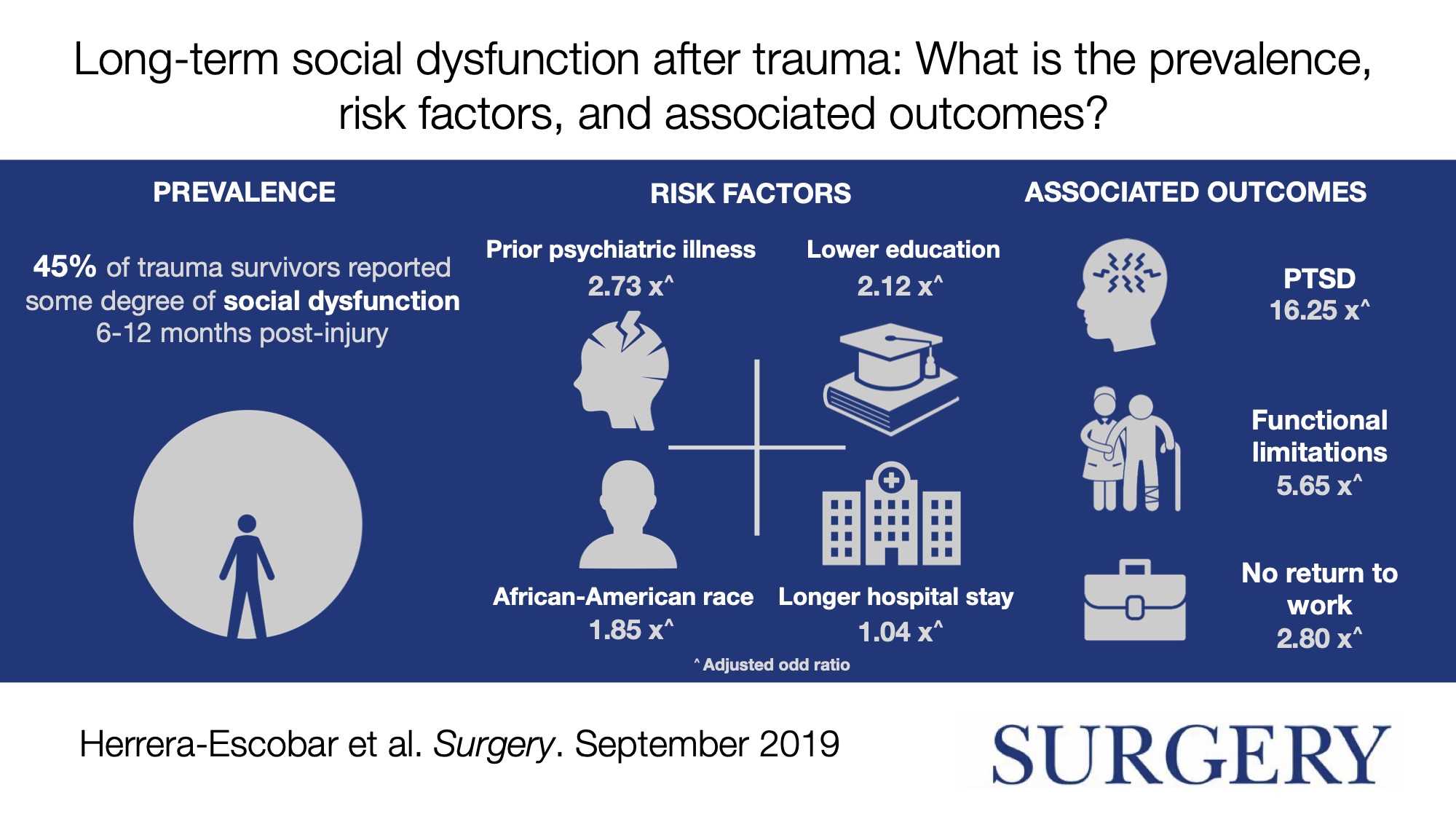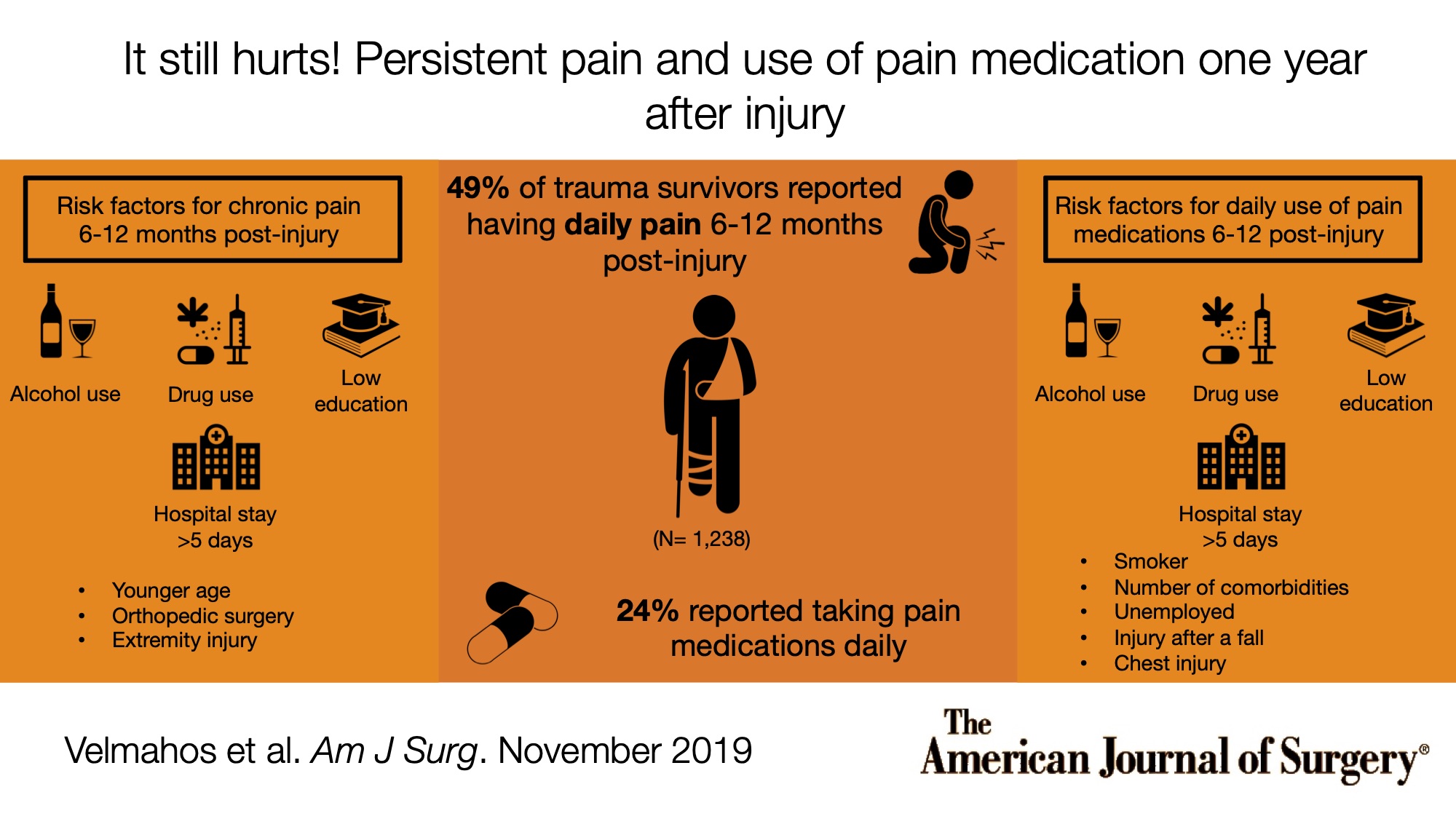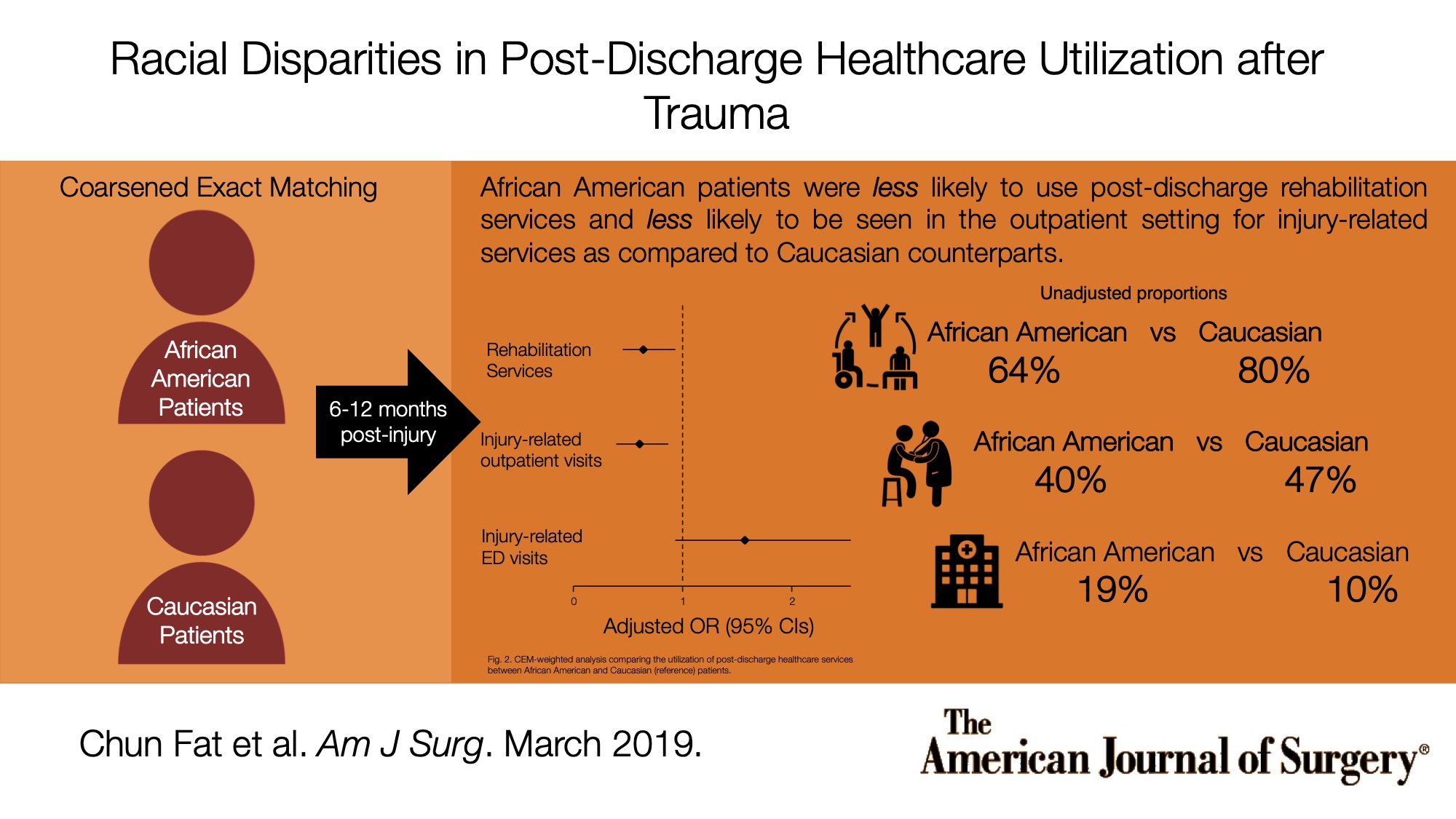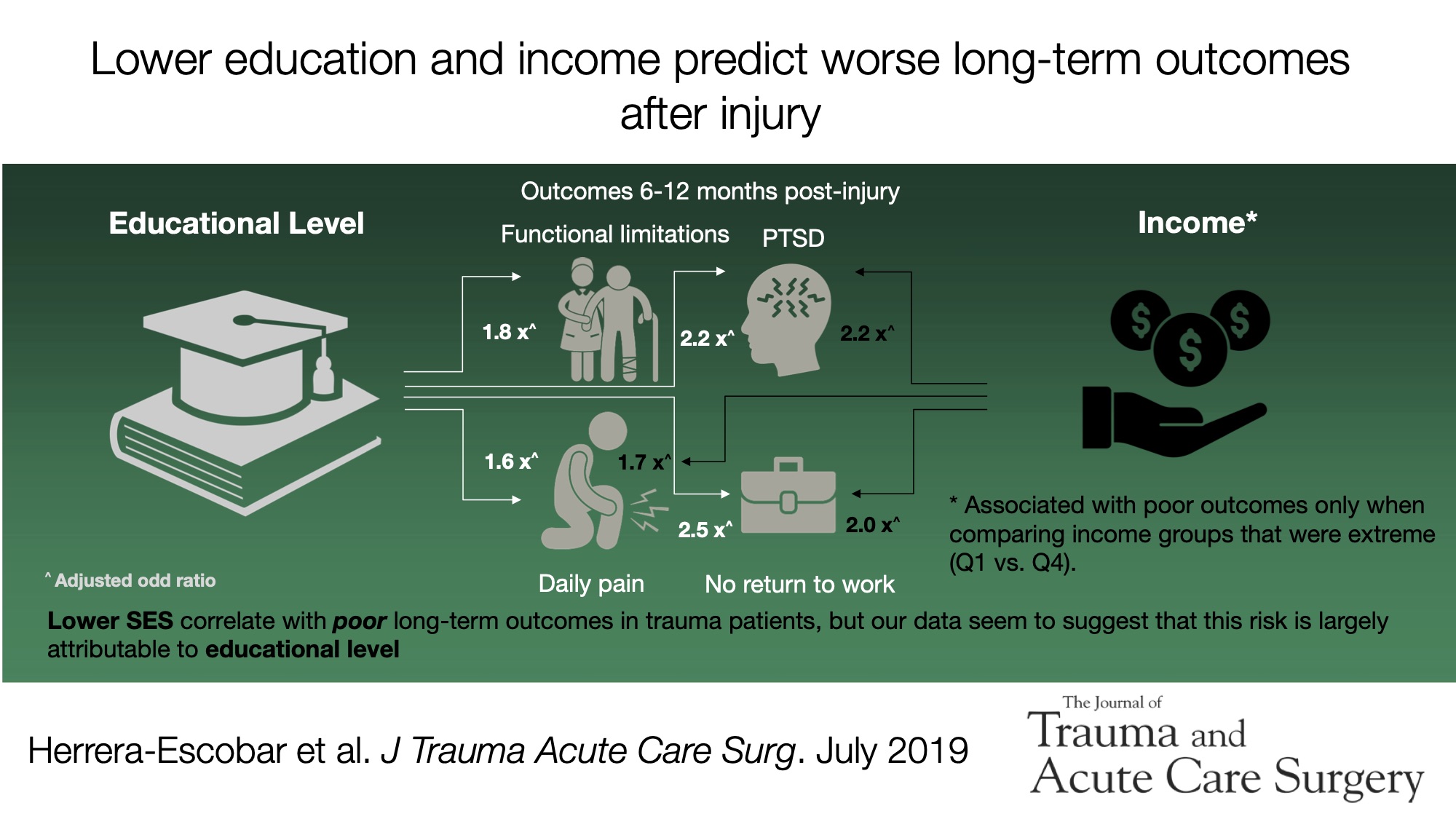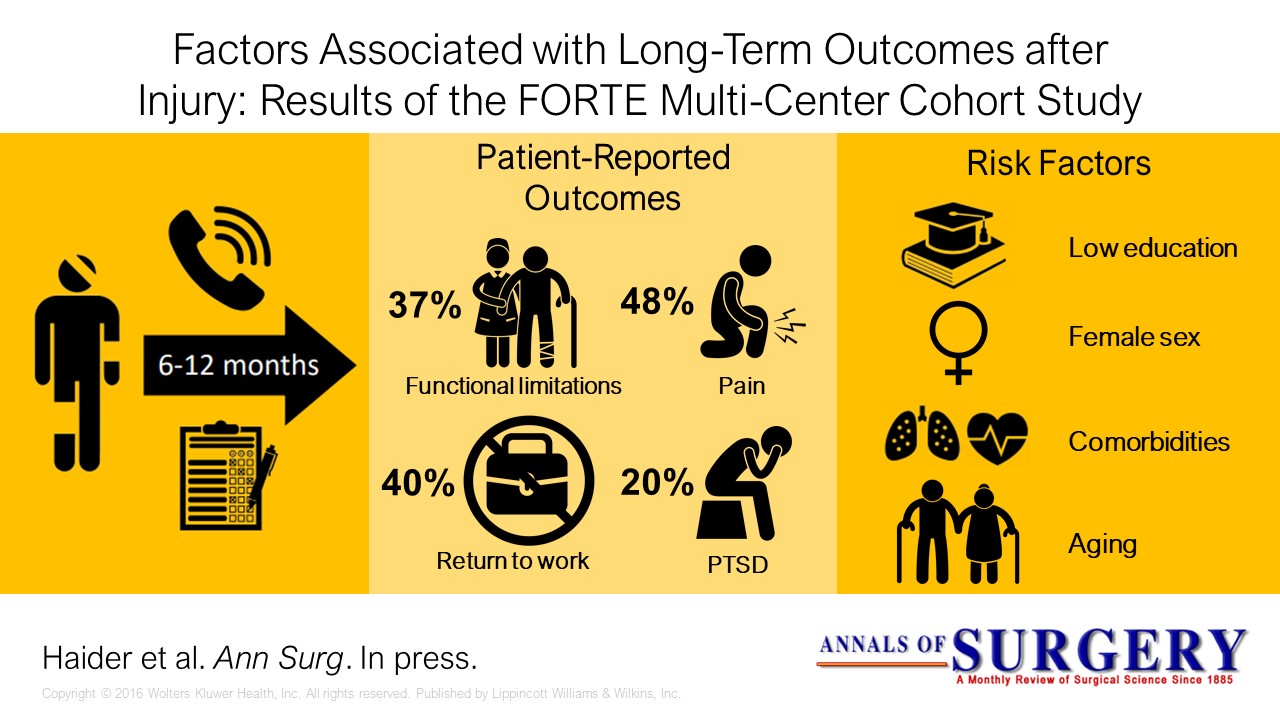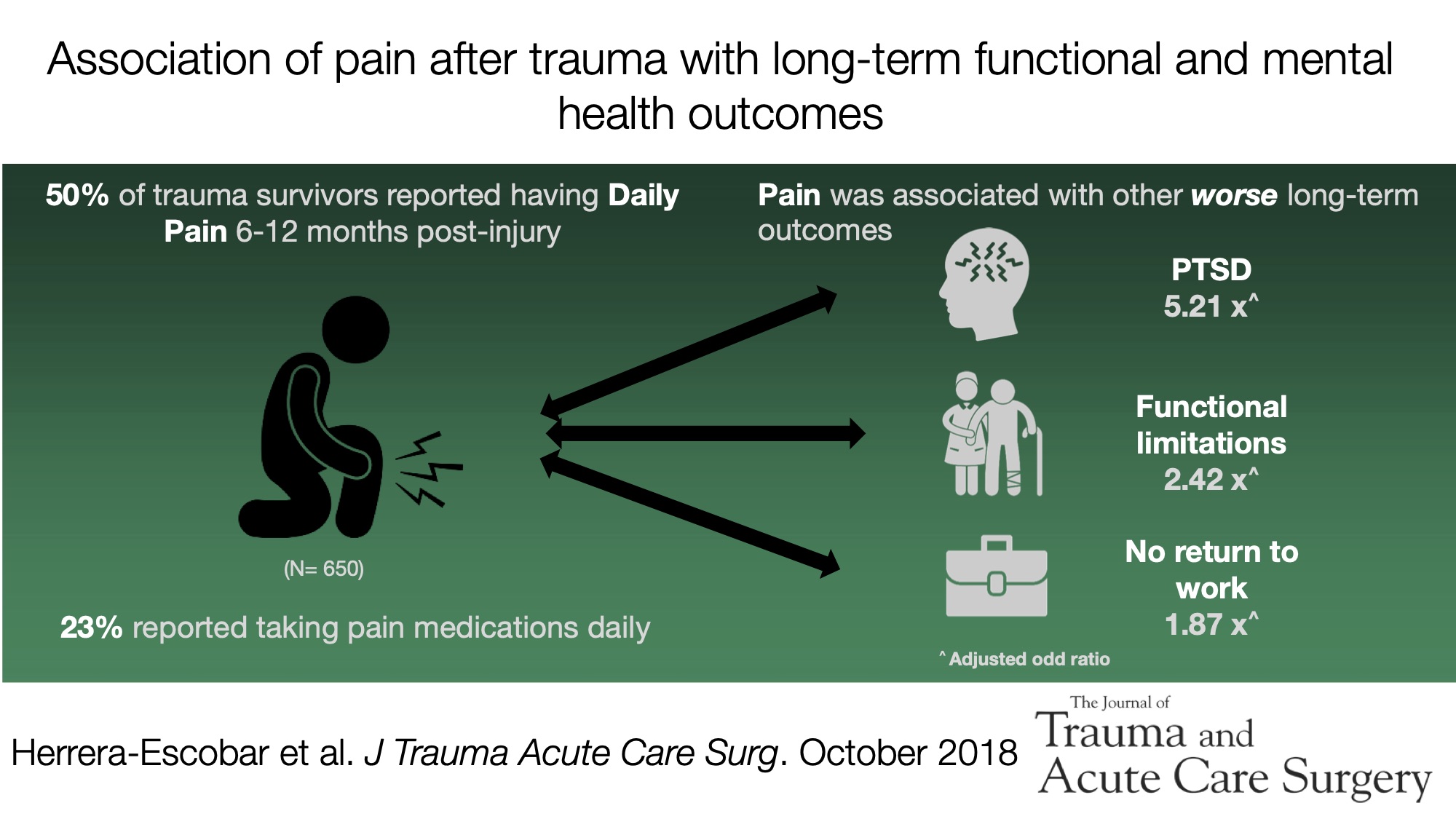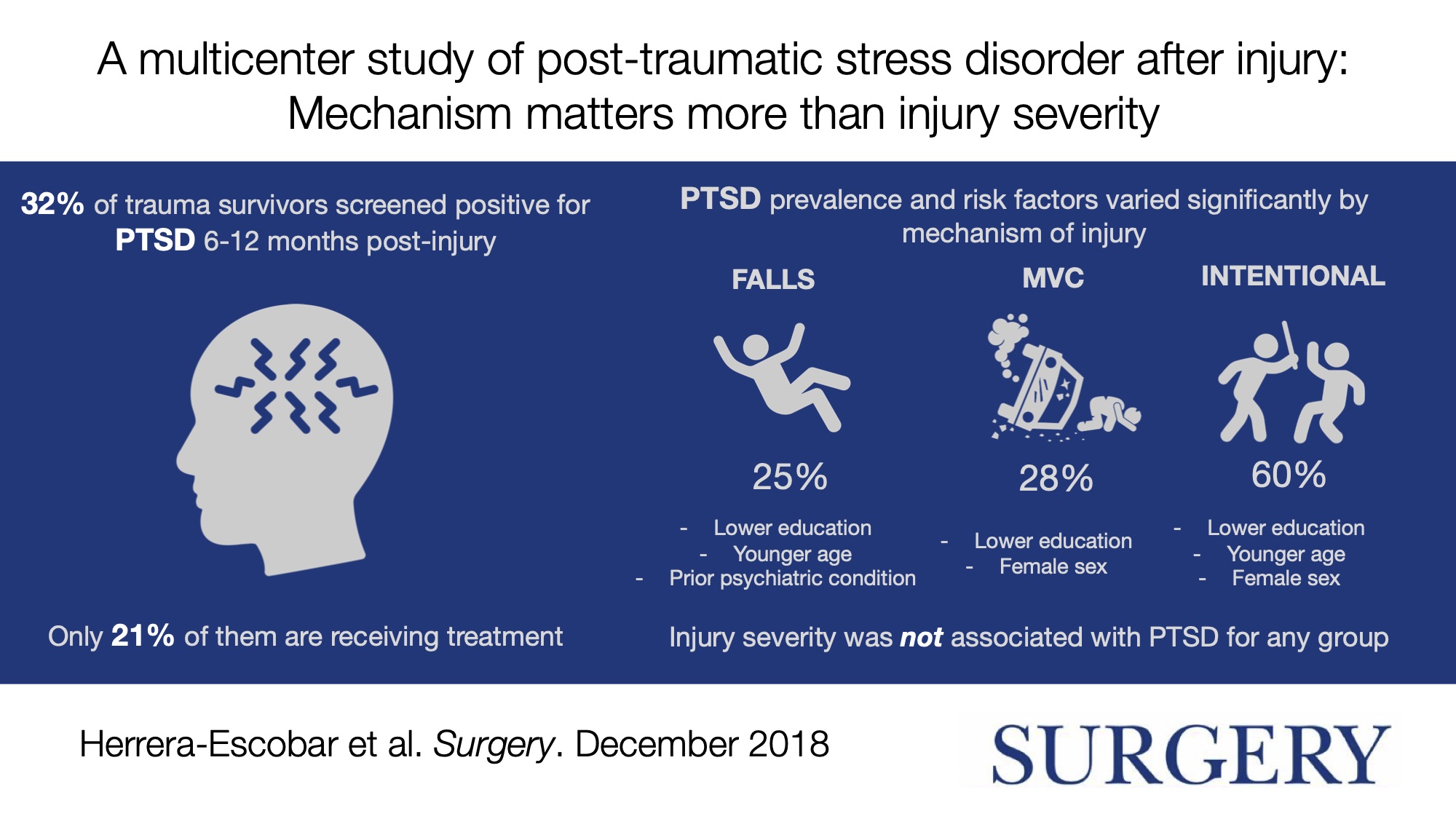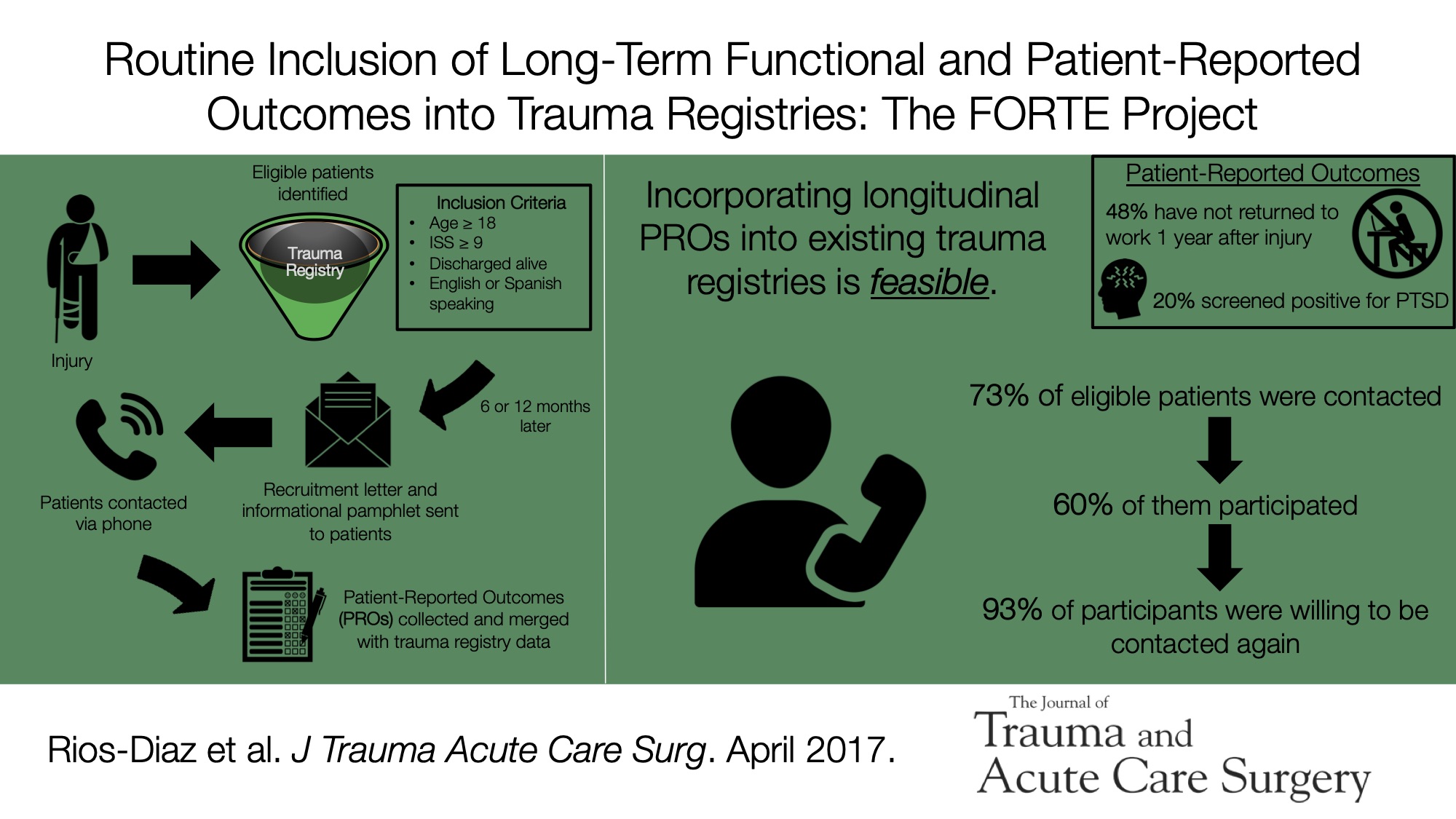FORTE | Redefining Trauma Recovery
Research and Publications
Since 2016, the FORTE project has produced and disseminated several important findings as well as demonstrating that routine collection of long-term trauma outcomes is feasible. Among these findings are that patient factors (age, gender, race, education) are more important than injury-related factors (injury severity or location) in predicting long-term outcomes and that poor long-term outcomes after injury tend to be associated with each other within and across different health domains (mental, physical, social). This research has prompted a reframing of traumatic injury as a chronic condition as described in the 2022 New England Journal of Medicine perspective “From Survival to Survivorship-Framing Traumatic Injury as a Chronic Condition” by Juan Herrera-Escobar, MD, PhD, and Jeffrey Schneider, MD.
Projects
In the United States, improvements in both medical technology and trauma clinical care have reduced in-hospital deaths from traumatic injury to fewer than 4%. However, what happens to the 96% of trauma survivors when they go home is largely unknown.
With funding from the Stepping Strong Center for Trauma Innovation, Juan Herrera-Escobar, MD, MPH, and colleagues will analyze smartphone use data, sensors, and ecologic momentary assessments to learn about trauma survivors’ recovery experience after hospital discharge. Specifically, RESTORE will use this cutting-edge technology, known as smartphone-based digital phenotyping, to track trauma survivors’ physical activity, mobility, pain, sleep, social participation, return to work, and community integration. This information will allow us to better understand what happens to survivors of traumatic injury after they leave the hospital and to develop ways to improve long-term recovery in trauma.
Funded by the MGB United Against Racism initiative, this project will create a new post-discharge clinical and behavioral health pathway entitled “The NESTS Pathway.” The primary goal of this pathway will be to increase rates of outpatient mental health evaluation for non-English speaking survivors of traumatic injury dealing with symptoms of depression, anxiety, or post-traumatic stress disorder. The NESTS Pathway will apply behavioral economic principles, employ the services of a community health worker, and design a checklist to anticipate and take steps to address systemic barriers to mental health evaluation or treatment. Leveraging the infrastructure previously developed for the FORTE project, the team will contact and screen for mental health conditions of all trauma survivors enrolled in the NESTS Pathway at 6- and 12-months post-injury. This project will be a multidisciplinary and multi-site effort at BWH and MGH with the goal to expand in the near future.
Publications
Research on the patient’s self-reported state of mind and emotional wellness after injury
Mental Health Burden After Injury: It’s About More than Just Posttraumatic Stress Disorder. Annals of Surgery 2021.
Resilience and long-term outcomes after trauma: An opportunity for early intervention? Journal of Trauma and Acute Care Surgery 2019
A multicenter study of post-traumatic stress disorder after injury: Mechanism matters more than injury severity Surgery 2018
Research on the long-term condition of patient’s body after injury taking into consideration everything from persistent symptoms to functionality
Patient-reported outcomes 6 to 12 months after isolated rib fractures: A nontrivial injury pattern. Journal of Trauma and Acute Care Surgery 2022.
Long-term functional outcomes of trauma patients with facial injuries. Journal of Craniofacial Surgery 2021.
The impact of in-hospital complications on the long-term functional outcome of trauma patients: A multicenter study Surgery 2019
It still hurts! Persistent pain and use of pain medication one year after injury The American Journal of Surgery 2019
Association of pain after trauma with long-term functional and mental health outcomes Journal of Trauma and Acute Care Surgery 2018
Research on the patient’s global functioning and ability to carry out their role within social settings such as work, family, and community
The Social Vulnerability Index and Long-term Outcomes after Traumatic Injury. Annals of Surgery 2022.
Perceived socioeconomic status: a strong predictor of long-term outcomes after injury. Journal of Surgical Research 2022.
Long-term social dysfunction after trauma: What is the prevalence, risk factors, and associated outcomes? Surgery 2019
Factors Associated With Long-Term Outcomes After Injury: Results of the Functional Outcomes and Recovery After Trauma Emergencies (FORTE) Multicenter Cohort Study Annals of Surgery 2018
Research on health disparities in long-term trauma outcomes including race, gender, ethnicity, and socioeconomic status
Lower education and income predict worse long-term outcomes after injury Journal of Trauma and Acute Care Surgery 2019
Racial disparities in post-discharge healthcare utilization after trauma The American Journal of Surgery 2019
Research on measurement tools and techniques for routine collection of long-term patient-centered data
Development and validation of a revised trauma-specific quality of life instrument Journal of Trauma and Acute Care Surgery 2020
Routine inclusion of long-term functional and patient-reported outcomes into trauma registries: The FORTE project Journal of Trauma and Acute Care Surgery 2017
Research on the use, costs, quality, accessibility, delivery, organization, financing, and long-term outcomes of health care services after injury
Reduced chronic pain: Another benefit of recovery at an inpatient rehabilitation facility over a skilled nursing facility? The American Journal of Surgery 2020
Racial disparities in post-discharge healthcare utilization after trauma The American Journal of Surgery 2019
Patient reported outcomes 6 to 12 months after interpersonal violence: A multicenter cohort study. The Journal of Trauma and Acute Care Surgery 2021.
Patient-reported outcomes at 6 to 12 months among survivors of firearm injury in the United States. Annals of Surgery 2021.
The impact of the COVID-19 pandemic on functional and mental health outcomes after trauma. The American Journal of Surgery 2022.
Impact of the CoViD-19 pandemic on long-term recovery from traumatic injury. Annals of Surgery 2021.

